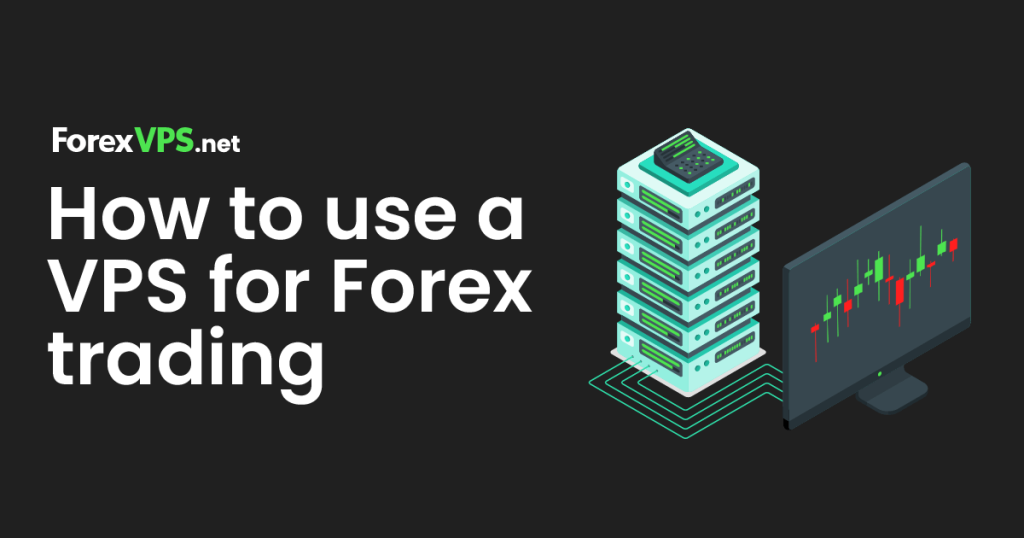
- Forex VPS hosting provides dedicated resources for efficient trade execution, minimizing latency and maximizing competitive advantage.
- Select a Forex VPS provider carefully by considering server location, uptime, reliability and more to ensure maximum value for investment.
- Monitor and maintain your Forex VPS regularly to maximize benefits and enhance trading performance with faster execution times and automated capabilities.
This comprehensive guide will walk you through using VPS for forex trading.
We will also share valuable tips on selecting the right VPS provider, setting up your VPS, and customizing it to fit your trading needs.
- What is VPS for Forex Trading?
- Why Should You Use a VPS for Forex Trading?
- How to Choose a Forex VPS Provider?
- Steps to Set Up a VPS for Forex Trading
- Accessing and Managing Your VPS Remotely
- Monitoring and Controlling Your Trades
- Tips for Maintaining Your Forex VPS
- What is the Difference Between Shared Hosting and Forex VPS?
- How Do I Connect My MT4 to VPS?
- Is VPS Safe for Trading?
- Is VPS Good for Forex Trading?
- How Does VPS Work in Forex Trading?
- What Spec VPS Do I Need for Forex Trading?
- Can I Use a VPS for Multiple Trading Accounts?
- Can I Upgrade my Forex VPS Plan If Needed?
What is VPS for Forex Trading?
A Forex VPS is a virtual private server that provides dedicated resources and optimized performance for running trading software and executing trades efficiently.
Forex VPS hosting is specifically designed to cater to the needs of Forex traders, offering features such as low-latency services, pre-built templates, and a 99.99% uptime guarantee. All of these combine to ensure a seamless trading experience for the trader. By using VPS services, you can enhance your trading performance and gain an edge in the competitive world of forex trading.
Why Should You Use a VPS for Forex Trading?
Using a VPS for forex trading offers many advantages that can significantly enhance your trading experience.
The major advantage of using a Forex VPS is the ability to run automated trading strategies 24/7, thanks to Forex robots or expert advisors (EAs). These automated scripts can execute trades even when you’re not monitoring the markets, ensuring you never miss a lucrative trading opportunity.
Another key benefit is faster trade execution. A VPS connection enables computer servers to be located closer to exchanges, thereby reducing latency in trading or the time between when you click the “buy” or “sell” button and when your trade executes. In the world of Forex, where every millisecond matters, this can be the difference between success and failure.
Furthermore, a VPS provides you with remote access, allowing you to manage and monitor your trading account from any location and at any time using any internet-enabled device.
Lastly, a Forex VPS offers:
- Reliability and dependability, thanks to its 24/7 availability and robust security measures
- Protection against power outages and internet connectivity issues, ensuring uninterrupted and secure trading operations
- Peace of mind knowing that trades are being executed promptly and securely, increasing the chances of success in the Forex market.
You need a forex VPS if you don’t trade using a trading bot, even if it’s for the sole reason of fast trade execution. However, if you run a trading bot, a forexVPS is non-negotiable.
How to Choose a Forex VPS Provider?
Selecting the right Forex VPS provider is crucial in optimizing your trading experience. To make an informed decision, it’s essential to consider factors such as:
- Server location plays a vital role in addressing latency issues. When the VPS server is closer to your broker’s server, chances are that your trades will get executed faster than another trader who’s trading from somewhere farther away. This means your order prices are close enough to your entry prices, and you have fewer slippages.
- Uptime: There are various tiers of data centers, categorized by the amount of uptime they offer. The more uptime your VPS provider can guarantee, the better.
- Reliability: This is important for uninterrupted trading. You just want a provider whose services you can rely upon whenever you need them.
- Scalability: This is the ability to easily upgrade or downgrade resources as needed. For instance, if you’re an HFT trader, you’ll need the best resources any VPS provider can offer. But should you choose to take a break from HFT trading, it would be more convenient for you if your VPS provider offered you the opportunity to scale down as you wish easily.
- Support: This is for when you need responsive and knowledgeable customer support. This is especially crucial if you’re not tech-savvy.
- Security: Robust security measures help to protect your data and transactions.
- Pricing: A competitive and transparent pricing structure is always important
Considering these factors will help you choose the best Forex VPS provider for your trading needs.
When evaluating potential forex VPS providers, it’s also important to assess their focus on forex trading and the dedicated resources they offer to ensure optimal performance. Comparing different providers based on these criteria will help you find the best VPS provider that suits your trading requirements and budget.
Remember, investing in a reliable and high-quality forex VPS is an investment in your trading success.
Steps to Set Up a VPS for Forex Trading
Setting up a VPS for Forex trading involves a few simple steps: selecting a suitable provider, signing up for a plan, and installing trading software on the server. By following these steps, you can ensure a smooth transition to VPS trading and enjoy its numerous benefits.

Throughout this process, it’s essential to ensure that the VPS meets the system requirements of your trading application and has sufficient resources to accommodate your trading needs.
Let’s check the steps in more detail:
1. Selecting a Suitable Forex VPS Provider
Choosing the right Forex VPS provider is crucial for optimizing your trading experience. Look for providers that offer low-latency servers, guaranteed uptime, and a focus on forex trading. This will ensure that you have access to a reliable and high-performance VPS that can handle the demands of forex trading, ultimately enhancing your trading performance and success.
Make sure to research the different providers and compare their features and prices to find the best option.
2. Signing Up for a Forex VPS Plan
Once you have selected a suitable Forex VPS provider, the next step is to sign up for a plan that meets your CPU, memory, and storage requirements based on your trading needs. Carefully review the available plans and consider factors such as the number of trading platforms you plan to run and the resources required for optimal performance. This will ensure you are getting the most value for your investment and can trade efficiently and effectively.
3. Installing Trading Software on Your VPS
After purchasing your Forex VPS hosting package, you’ll need to install your trading software on the server. This typically involves downloading and installing your preferred trading platform, such as MetaTrader, onto the VPS server. This process is as easy as installing the Metatrader on your computer off the server.
Once the platform is installed, you can configure your custom indicators and Forex trading algorithms, as well as any Forex robots or Expert Advisors, to start trading and capitalizing on the advantages of a Forex VPS.
For a more detailed piece on how to set up your forex VPS, go through this piece:
How to Setup a VPS for Forex Trading
Accessing and Managing Your VPS Remotely
Some of the key advantages of using a forex VPS is the ability to:
- Access and manage it remotely from any location
- Use any internet-enabled device
- Monitor and adjust your trades on the go
- Ensure that you never miss a profitable trading opportunity
This flexibility allows you to stay connected and make informed decisions at all times, thanks to a reliable internet connection.
By utilizing remote access, you can maintain complete control over your trading operations, no matter where you are.
Monitoring and Controlling Your Trades
Using a VPS for forex trading enables you to monitor and control your trades more effectively, with faster trade execution, real-time risk management, and automated trading capabilities. By leveraging the power of VPS technology, you can ensure that your trades are executed promptly and accurately, reducing the likelihood of missed opportunities or costly mistakes.
Tips for Maintaining Your Forex VPS
To ensure optimal trading conditions, it’s vital to maintain your Forex VPS by keeping your operating system and other software up-to-date, avoiding unnecessary applications, and regularly monitoring performance. By proactively managing your VPS, you can minimize potential issues and ensure that your trading operations run smoothly and efficiently.
Remember, a well-maintained VPS is a powerful tool in the hands of a successful trader.
What is the Difference Between Shared Hosting and Forex VPS?
Shared hosting is a cost-effective web hosting option where multiple websites are hosted on the same server, but it offers limited resources and slower performance. On the other hand, forex VPS, provided by VPS hosting companies, is specifically designed for forex trading and offers dedicated resources for improved performance and reliability, albeit at a higher cost.
ForexVPS.net is a perfect example of a VPS provider that provides a more specialized and powerful forex VPS hosting service tailored to the unique demands of forex trading.
How Do I Connect My MT4 to VPS?
Connecting your MT4 to a VPS is straightforward. First, you need to use Remote Desktop Connection software to connect to your VPS server, using the IP address and login credentials provided by your VPS provider.
Once connected, you can download and install the MT4 platform on the VPS server. After the installation is complete, you can configure your custom indicators, algorithms, and Forex robots to start trading on your VPS.
Is VPS Safe for Trading?
Forex VPS is generally safe for trading, provided you choose a reputable provider with strong security measures in place. Data centers housing VPS servers typically employ backup servers, security protocols, and power generation capabilities to ensure the safety and reliability of your trading operations.
Choosing a reputable VPS provider is crucial for your trading security. It guarantees the safety of your data and the smooth operation of your trades.
Is VPS Good for Forex Trading?
VPS hosting is an essential tool for Forex traders since it reduces latency, keeps them connected and secure, and provides an automation component for their risk management strategies.
Therefore, VPS is a good choice for Forex trading.
How Does VPS Work in Forex Trading?
Forex VPS provides a permanent connection from your trading terminal to the wider trading network, allowing traders to deploy their expert advisors on a dedicated server that runs 24/7 without interruption and without any effort on the trader’s part.
This connection ensures that trades are executed quickly and accurately and that the trader’s strategies are always running and never interrupted. It also eliminates the need for manual intervention, allowing traders to focus on their trading strategies and not worry about the technical aspects of their trading environment.
What Spec VPS Do I Need for Forex Trading?
For forex trading, the most commonly recommended setup is a VPS plan with 1 CPU core and 2GB RAM. This allows you to easily run MT4, the most popular trading platform. You can go up to 4 CPU cores and 8GB RAM, or even higher if required.
There are many high-end solutions available.
Can I Use a VPS for Multiple Trading Accounts?
You can use a VPS for multiple trading accounts as long as it has sufficient resources to handle the additional workload.
Can I Upgrade my Forex VPS Plan If Needed?
You can upgrade your Forex VPS plan if needed, as most providers offer scalable plans that allow for resource adjustments.
